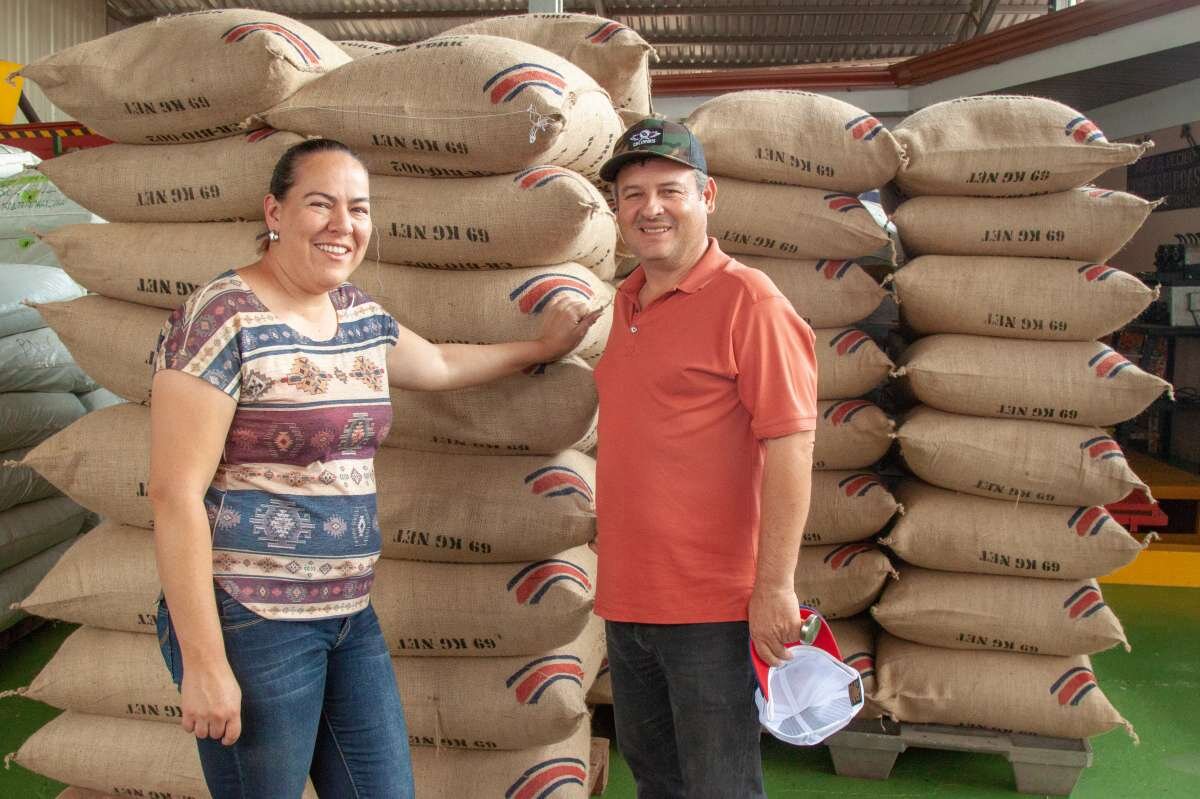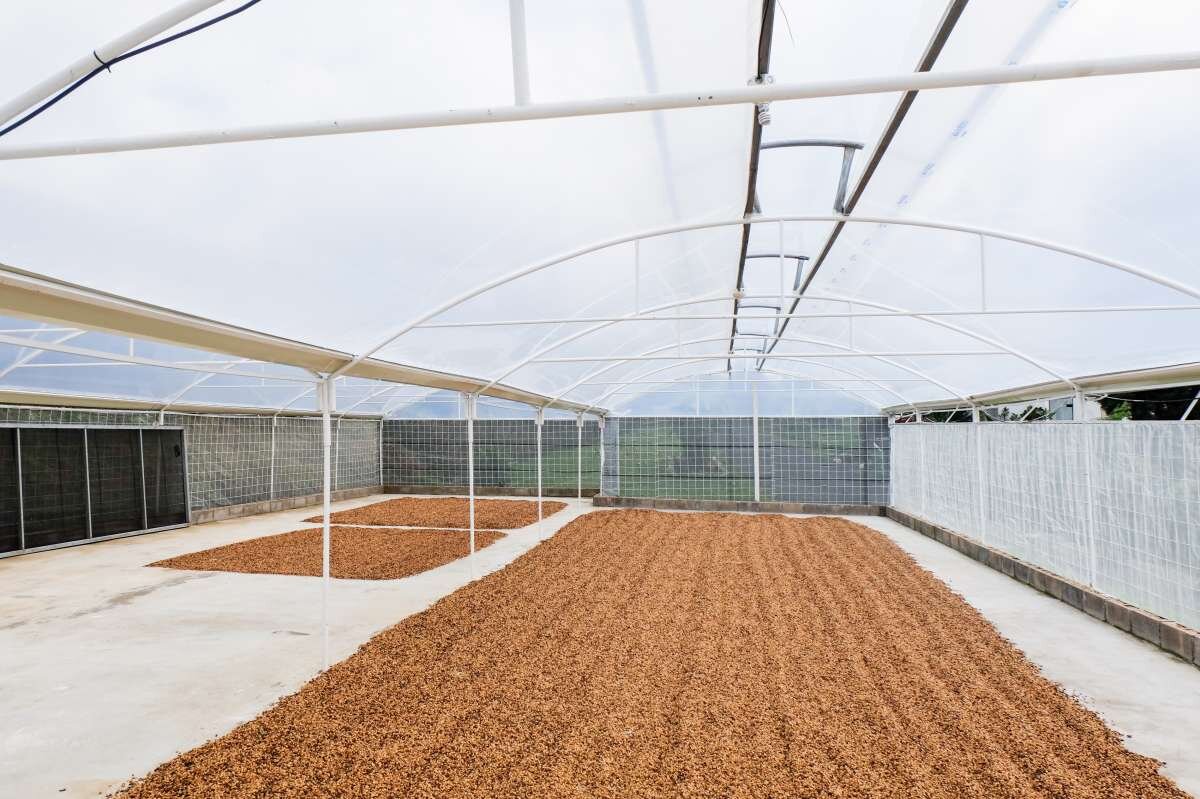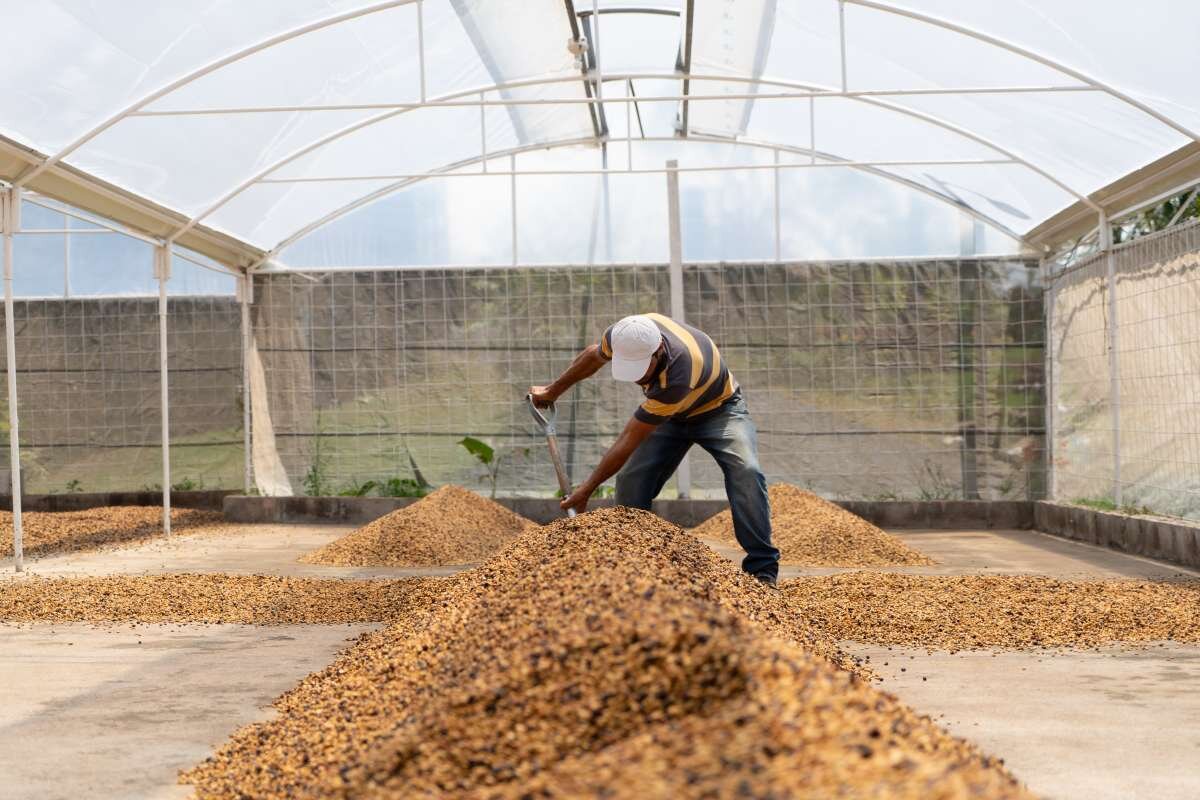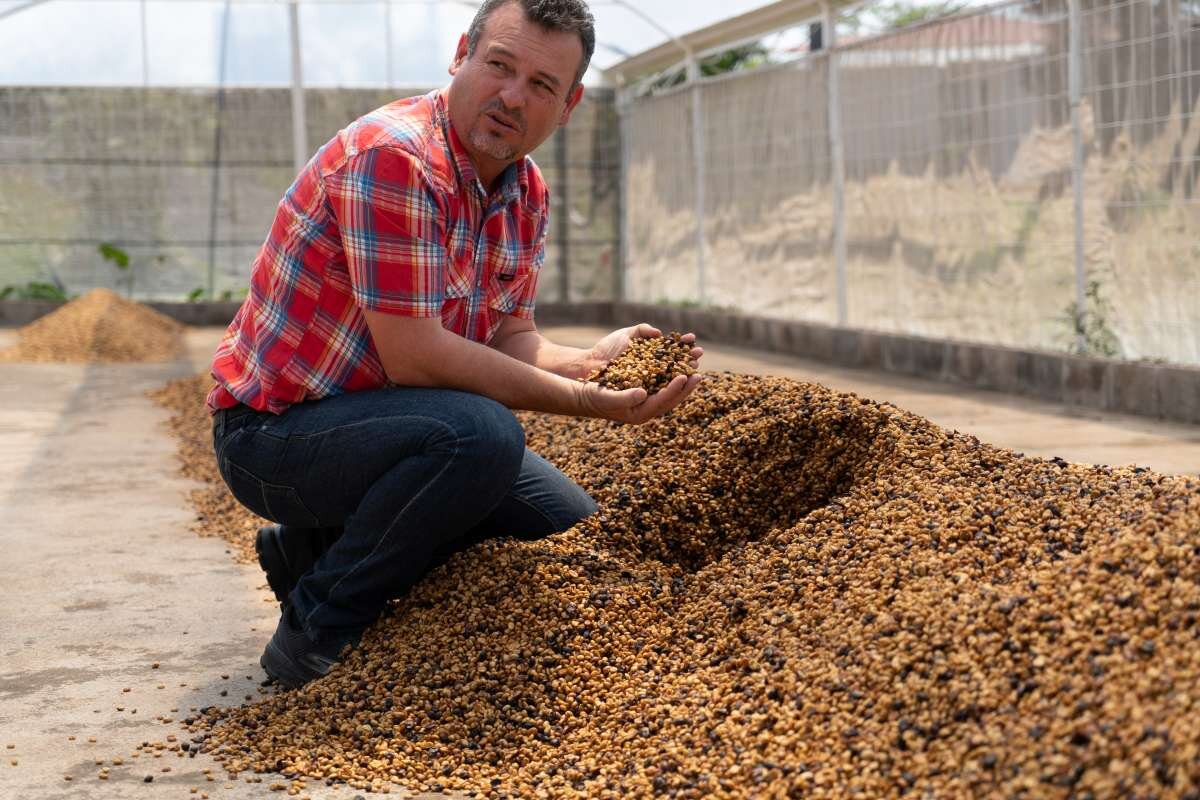The family behind the coffees of Las Lajas
Francisca Chacon is passionate about great coffee. We had the good fortune to meet Donna Francisca in 2016 when she and two other coffee producers visited our long-time importer, Cafe Imports in Minneapolis. By the time we had met, we were already big fans of Francisca and her husband Oscar’s micro-mill located in Sabanilla de Alajuela in the Central Valley Region of Costa Rica. The year before meeting Donna Francisca we contracted a few months worth of one of their beautiful micro-lots - and the flavors were deep, fruity, and absolutely distinct from any Costa Rican coffee we’d ever tried.
Dona Francisca and Don Oscar Chacon of Las Lajas Micromill are third-generation coffee producers. Coffees from Las Lajas are widely considered among the best natural and honey processed coffees in the world.
There are three big reasons why Las Lajas has become such a popular micro-mill among craft-coffee roasters. First, they were among the very first Organic Certified mills in Costa Rica. Second, they are broadly considered one of the best natural and honey processing micro-mills in the world. Lastly, they are passionate and skilled entrepreneurs. Coffees from Las Lajas are, on average, 3-4x the price of a conventional organic coffee from Central America - the Chacon’s are doing something right.
When we purchased our first lots from Las Lajas in 2015 we literally could not find another Organic Costa Rican coffee on the market. The Chacon’s work with farmers in their region to ensure that the highest environmental standards are met in the growing and harvesting of the coffees they buy. They are stewards of their environment and have a deep appreciation for the opportunities and possibilities in great coffee. And they know and understand the connection between great coffee and great taking great care for the environment.
The Chacon’s have an experimental and selective approach to processing methods. Not only is every single coffee they produce traceable to the farmer in the Central Valley Region where these coffees are grown, and traceable to the varietal of the coffee itself, each coffee is selectively processed differently. For example, this year we have contracted two different lots from Las Lajas. The first lot is in the title of this post, from the good people farming the land at Finca Calle Liles. It’s a varietal called, Villa Sarchi and the coffee is a natural processed coffee called Perla Negra, which refers to the style of natural processing. The coffee dries directly in the sun for 10 days, rotating constantly, and then is transferred to bags and left for 2–3 days before being moved to raised beds. Las Lajas produces multiple micro-lots from different producers in this style and other variations on the natural process.
Here are some notes on Finca Calle Liles:
Origin: Costa Rica, Finca Calle Liles, Las Lajas Micromill
Region: Sabanilla de Alajuela, Central Valley
MASL: 1450-1600
Varietal: Villa Sarchi
Process: Perla Negra, Natural
Flavor: Complex, Jammy, Strawberry, Raspberry.
Later this year, we will introduce another gem from Las Lajas, this time from the farmers at Finca Sabanilla. This is a Caturra varietal and Las Lajas uses an all-together different processing method called Black Honey. The Honey Process is also sometimes called a Pulped Natural Process and it is something of a hybrid between “Natural” and “Washed” processed coffees. Natural coffees are typically harvested, sorted, and dried with the fruit left on the seed to whither in the sun. Washed process coffees are harvested, sorted, and then washed and pulped. The seeds are then soaked and fermented to remove the mucilage, then dried. A “Honey Processed” coffee is typically washed, pulped, then allowed to dry with the mucilage still on the seed. They’re called “Honey” because they are sticky :) No honey is actually “added” to the process.
All of this is to say that Las Lajas is on the cutting edge of experimental processing of coffee.
Lastly, Oscar and Francisca are real deal entrepreneurs. It’s important to understand the disparity between producers of high-quality coffees like the Chacrons and those without the means to meet those exacting standards. Unfortunately, many coffees grown around the world are low quality and commodity grade. Producers are sometimes so disconnected from the consumer they don’t even taste their own coffee. The Chacron’s are savvy, smart, and passionate. Meeting Francisca and hearing the excitement in her voice and seeing it in her eyes, you know why they are considered some of the best producers in the world. They are consistently producing quality coffee at a level far above their peers. They are leaders in their industry and their community.
We’re excited to re-introduce you to some of the beautiful coffees from the family-producers at Las Lajas Micro-Mill.
Michael Shipley, Conscious Cup Coffee Roasters
At Conscious Cup we are grateful to know and work with some of the best importers in the world. Below is some more information about Las Lajas directly from them:
Dona Francisca and Don Oscar Chacon of Las Lajas Micromill are third generation coffee producers in their family. They inherited their farms from their grandparents and are known for being one of the first to process high-quality Honeys and Naturals in Central America and for participating in the Cup of Excellence auction in 2009.
Las Lajas is an organic micromill located in Sabanilla de Alajuela in the Central Valley region of Costa Rica. Organic coffee in Costa Rica is almost non-existent and with this caliber of cup makes it one of a kind; they believe in the preservation of the environment hence their organic practices. Las Lajas processes coffee from their family farms’; these lots are fully traceable and separated by day. Water use is minimal since coffee is not washed. During the harvest Francisca will measure the brix contents in the coffee cherry to determine the optimal time to pick their coffee. 21 - 22% brix content has been the maximum they’ve seen.
Honey Processes
Las Lajas carries several distinct processes from this mill.
Yellow Honey: 100% Mucilage left on, turning hourly on the bed
Red Honey: 100% mucilage left on, turning several times a day (less frequent than yellow honey)
Black Honey: 100% mucilage left on, turning only once per day
Perla Negra: Natural process, turned normally on raised beds
Alma Negra: Natural process, turned only a few times a day on raised beds
This honey process of leaving 100% of the mucilage on in all "levels" of honey is distinctive to Las Lajas. This just shows that terminology can mean various things region to region and farm to farm.
Cafe Imports is excited to bring you, once again, high-quality and traceable microlots from Costa Rica.Cafe Imports bought its first Costa Rica microlot container at the end of the 2006/2007 harvest; at that time the microlot offerings were basically non-existent. In six years the Costa Rica microlot market has grown to be one of the most popular origins that deliver very consistent quality year-after-year.
The Costa’s Cafe Imports is sourcing directly from micro-mills and producers were paid at the Farm Gate level. We managed local transportation, dry-milling, consolidation, and exportation of the coffees. This experience is extremely valuable as it gives us a better understanding of what it takes to get coffee from cherry to export quality in GrainPro and Yute with its corresponding marks.-Piero Cristiani, Cafe Imports








